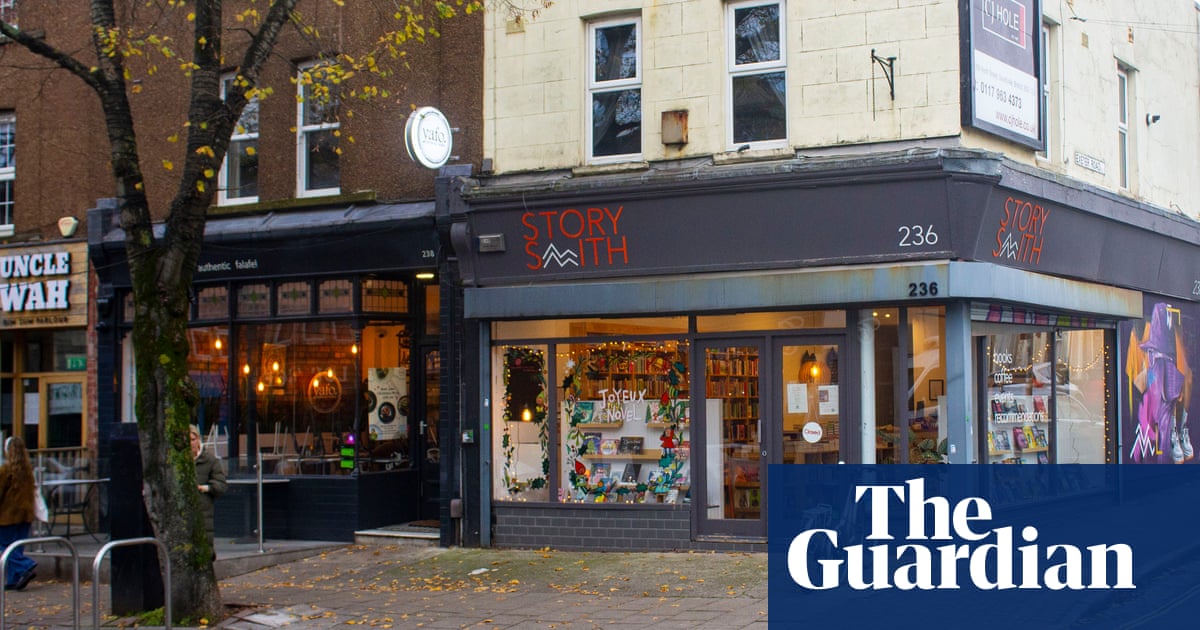A new festival of translated literature is being launched inBristolnext week amid a sales boom in translated fiction in the UK.
Translated By, Bristolis the brainchild of Polly Barton, author and translator of the award-winningButter by Asako Yuzuki, and Tom Robinson, owner ofGloucester Road Books, which is organising the festival alongside Barton and another independent Bristol bookshop,Storysmith.
“Translated fiction becoming more popular in recent years has not necessarily led to a greater appreciation for the work of translators, or much consideration of the act of translation itself,” says Robinson. “We wanted to think about whether there was something we could do that would address both of these concerns.”
The festival, which runs 12-25 May, will featurea conversationbetween five translators shortlisted for the International Booker prize and a“translation duel”– in which translators debate their translations of a text in front of an audience – among other events.
UK readers continue to have strong appetites for translated fiction, with Butter sellingalmost 250,000copies in the UK last year. Social media buzz around particular titles has helped shift copies: Ros Schwartz’s translation of Jacqueline Harpman’s I Who Have Never Known Men, a favourite on“BookTok”, sold45,000 copieslast year, an elevenfold rise on 2022 sales.
Festival organisers were aware of increased interest in translated literature from readers, meaning they felt the festival “would have a breadth of appeal it might not have done, say, five years ago”, says Barton.
A central reason for the recent success of translated literature is the work of independent publishers such asFitzcarraldo,PeireneandComma, say the organisers. Those presses “tend to be more willing to take risks”, adds Robinson.
One of the key aims of the festival is to showcase a “breadth of languages and geographies, beyond the major languages and locations of Europe, which tend to occupy so much focus”, says Robinson.
The programme features an event ontranslating the work of the Cameroonian poet Jean-Claude Awonoand anotherwith Hassan Blasim, who writes in Arabic, along with his translator Jonathan Wright. The festival will also host a conversation betweentwo prominent translators of Latin American literature, Frank Wynne and Annie McDermott.
“We also have events featuring European languages that aren’t the five or so that get the most attention,” says Barton, with conversations about books translated from Slovakian (This Room Is Impossible to Eatby Nicol Hochholczerová, translated by Julia and Peter Sherwood) and Danish (Iron Lungby Kirstine Reffstrup, translated by Hunter Simpson).
Barton sees this approach of “actively looking beyond our immediate borders” as helping to “resist the political currents promoting xenophobia, prejudice and cultural homogeneity”.
The festival will also seeMax Porter talking to two of his translators, Saskia van der Lingen (Dutch) and Charles Recoursé (French). It will close with the translation duel, featuring Adriana Hunter and Wynne. “The language of the slam this year is French, and we’re distributing the text to people in advance, so there’s the opportunity for people with a little French knowledge to have a go themselves if they like,” says Robinson.
Duels are an “excellent way of opening up the process for people and allowing them to get a sense of how creative translation really is”, adds Barton.
Translated By, Bristolis on 12-25 May
